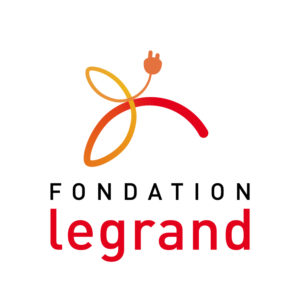 NHS Scotland’s Dumfries and Galloway region reported on Friday 15 March a “focused and ongoing” cyberattack affecting their 148,500 patients. Information is light at this point, but the region has reported system incursions that may involve the acquisition of patient data. “We have reason to believe that this could include patient-identifiable and staff-identifiable data.” Police Scotland, the Scottish Government, the National Cyber Security Centre, and the NHS have all been notified along with law enforcement. This story is developing. NHS D&G cyberattack page, BBC News, The Record, Cybercrime Magazine Top News 15 Mar
NHS Scotland’s Dumfries and Galloway region reported on Friday 15 March a “focused and ongoing” cyberattack affecting their 148,500 patients. Information is light at this point, but the region has reported system incursions that may involve the acquisition of patient data. “We have reason to believe that this could include patient-identifiable and staff-identifiable data.” Police Scotland, the Scottish Government, the National Cyber Security Centre, and the NHS have all been notified along with law enforcement. This story is developing. NHS D&G cyberattack page, BBC News, The Record, Cybercrime Magazine Top News 15 Mar
Delisting from Nasdaq hasn’t hurt Veradigm’s results in the slightest. As TTA and others noted in late February, Veradigm management telegraphed their strong financial state while announcing the acquisition of ScienceIO, an AI data company. These are all unaudited revenue numbers:
- For 2023, revenue between $608 million and $622 million, net income from continuing operations is estimated between $49 million and $58 million.
- For 2024, their estimate is for revenue growth ranging from $620 million to $635 million, with adjusted EBITDA of between $104 million and $113 million, with net cash of $140 million subsequent to the ScienceIO acquisition.
Veradigm’s repositioning post-ScienceIO will be around healthcare intelligence with scaled and proprietary LLM products supporting physicians & providers, payers, and life science research enterprises. Release
Now about those 2022 and 2023 financial reports that went sideways due to their financial software. Lee Westerfield, their interim chief financial officer, stated at the Barclays 26th Annual Global Healthcare Conference that the audit process is not only “prolonged” but also not fully in the company’s hands but with auditors. While they won’t say it out loud, it seems that Veradigm hasn’t let the Nasdaq delisting cramp their style, nor making money, at all. Crain’s Chicago Business
New York-area One Medical patients caught in the UnitedHealthcare-Mount Sinai clash. Mount Sinai, one of the leading hospital systems of the New York metro, is in a dispute with UnitedHealth on their upcoming insurance contract. Mount Sinai requested higher payments for hospital stays and physician visits, not unexpected given the duration of most of these contracts span several years and inflation has bitten hard over the past two years, but UHG rejected this. The lack of a contract as of Thursday 14 March means that as of 22 March, patients of Amazon-owned One Medical practices in the New York area with UnitedHealthcare and Oxford insurances (Oxford is an insurance brand of UHG) will not be in-network if receiving services through Mount Sinai’s hospital network. One Medical is part of Mount Sinai’s clinically integrated network (CIN) but apparently this has no impact. This Editor is betting that Amazon did not figure on provider/payer disputes of this type–it may be the first of many affecting One Medical with hospital networks. Becker’s
Some good news from Amwell around their new partner, Suki AI. The Suki voice-enabled AI powered digital assistant will be integrated into Amwell’s platform Converge. The voice assistant will not require a separate app as fully integrated into Converge and into Amwell providers’ existing workflows. Suki Assistant leverages natural language processing to help clinicians complete notes 72% faster on average, according to Suki, and also supports coding and dictation. A date was not specified for implementation. Suki has partnered with with multiple EHR systems, including most recently Meditech. The Amwell platform is used by providers at more than 55 health plans covering 90 million lives, plus 2,000 hospitals and health systems. Suki release, Healthcare IT News
In more partner news in the UK, Legrand and Possum have extended their now 14-year reseller agreement. Possum continues as the exclusive reseller for the NOVO range of Legrand telecare products in the UK and Ireland. Read more about it on TSA Voice and UKTelehealthcare. While you’re there, our UK Readers can also seek our supporter UKTH’s continued training events and resources on the 2025 Digital Switchover. Legrand is a long-time advertising supporter of TTA.
Zephyr AI raises $111 million in Series A financing. Revolution Growth, Eli Lilly & Company, Jeff Skoll, and EPIQ Capital Group financed a bountiful Series A scarcely seen since 2022. As you’d expect, Zephyr has this year’s flavor, having integrated AI into precision medicine for oncology and cardiometabolic disease. Zephyr’s earlier seed round of $18.5 million was raised in March 2022 (Crunchbase). From the release: “The new funds will enable Zephyr AI to further enhance its analytical speed and fortify its extensive collection of training and validation data sets. Moreover, the funds will support the expansion of the company’s scientific and commercial teams to expedite the delivery of its rapidly growing pipeline of insights to the market.”











Most Recent Comments